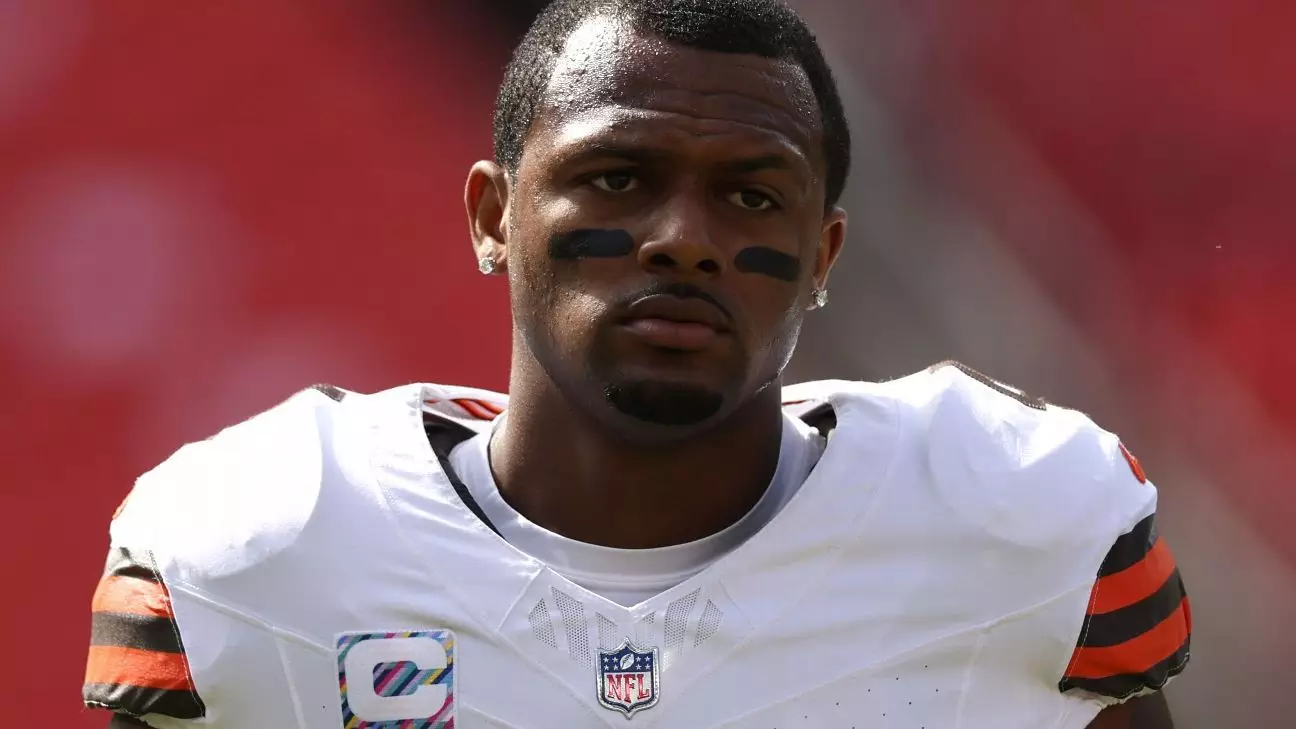Legal Scrutiny: The Deshaun Watson Saga Continues
Hey there, fellow sports enthusiasts! Today, we’re diving into a topic that has been making waves in the sports world and beyond: the ongoing saga of Deshaun Watson. As someone who loves both football and the integrity of the game, this story hits home for many reasons. The intersection of athletic talent and personal conduct is a conversation that’s crucial not just for fans but for society at large. With so much at stake, it’s important to unpack these developments thoughtfully.
As we navigate through this narrative, I can’t help but feel a mix of emotions. There’s admiration for athletic prowess but also concern over how allegations of misconduct are handled in professional sports. The story of Deshaun Watson is more than just headlines; it’s about accountability, transparency, and the values we hold dear in both sports and life. It’s a complicated issue with implications that stretch far beyond the football field.
Before we dive deeper into the specifics, I’ll outline what we’ll be discussing. We’ll explore the legal intricacies surrounding Watson’s situation, the NFL’s response, and what this means for the future of player conduct policies. Whether you’re a die-hard football fan or someone concerned about justice and fairness, there’s something in this discussion for everyone.
Key Takeaways
- The Deshaun Watson case highlights ongoing concerns about player conduct within the NFL.
- Legal outcomes often lead to broader discussions on accountability and justice in sports.
- The NFL’s handling of such cases can significantly impact its public perception and policies.
The Allegations and Legal Proceedings
In recent years, the National Football League has faced increased scrutiny regarding player behavior, particularly concerning allegations of sexual misconduct. Deshaun Watson’s case is one that epitomizes these challenges. In September 2023, Watson was accused in a lawsuit of sexual assault and battery related to an incident from October 2020 when he was with the Houston Texans. The lawsuit details a planned dinner meeting with Jane Doe at her apartment, which subsequently led to serious accusations against him.
Watson immediately denied these claims through his attorney Rusty Hardin. Despite his denial, the media attention was intense, drawing widespread public interest and legal examination. A month later, Watson reached a confidential settlement with his accuser. While settlements can bring closure to legal disputes, they often spark debates about whether true justice has been served, especially in cases involving sensitive issues like sexual misconduct.

NFL’s Investigation Process
The NFL launched its own investigation into Watson under its personal conduct policy. At this point, Watson has not been placed on the commissioner’s exempt list because no criminal charges have been filed against him. This scenario places the league in a difficult position as it navigates its role as both an entertainment entity and a moral authority. Regardless of criminal charges, allegations like these carry significant weight on a player’s career and reputation.
Tony Buzbee, representing Watson’s accuser, mentioned that she and other witnesses were willing to cooperate with the NFL’s investigation. However, as things stand now, it remains uncertain whether they will engage further with the league’s inquiry. This uncertainty raises broader questions about how thorough and transparent such investigations are when it comes to dealing with high-profile allegations involving star athletes.
A Broader Context Within Sports
This lawsuit is merely one chapter in Deshaun Watson’s broader saga. Between 2021 and 2022, multiple women accused him of sexual misconduct during massage therapy sessions. These accusations resulted in 24 legal claims against him. Despite two Texas grand juries declining to press criminal charges, the NFL decided to impose an 11-game suspension on him for violating its conduct policy. This decision underscores how complex handling such situations can be within professional sports leagues.
Watson’s case reflects ongoing struggles within the NFL concerning discipline and public perception. After resolving previous lawsuits by settling 23 claims against him, he was fined $5 million and mandated to undergo counseling and treatment programs. Yet despite these serious allegations, he secured a remarkable deal with the Cleveland Browns—a fully guaranteed contract worth $230 million—marking an unprecedented financial commitment by any team in league history.

Impact on Career and Reputation
As Deshaun Watson continues playing for the Cleveland Browns, his performance has been under intense scrutiny from fans and analysts alike. Coach Kevin Stefanski’s earlier choice not to comment on ongoing allegations raised eyebrows among observers who expected more transparency from team leadership. On-field performance has also been mixed—Watson’s quarterback rating (QBR) plummeted significantly due to struggles during games—and many question whether he can justify such massive investment made by his franchise amidst swirling controversies off-field.
While legal battles seem temporarily resolved for now following confidential settlements reached between parties involved earlier this year; ramifications arising out alleged misconduct still linger heavily around QB starlet’s image & legacy left behind post-career end eventually someday too perhaps sooner than expected if things don’t improve drastically sooner either way regardless though ultimately only time shall tell exactly what lies ahead next chapter awaits eagerly anticipated surely enough already anyway guess we’ll see soon enough suppose till then stay tuned folks!
Final Thoughts
Deshaun Watson’s ongoing narrative serves as a reminder that managing off-field behavior is crucial within professional sports contexts today more than ever before perhaps even especially given heightened awareness surrounding issues related #MeToo movement globally speaking generally speaking overall anyway regardless though ultimately only time shall tell exactly what lies ahead next chapter awaits eagerly anticipated surely enough already anyway guess we’ll see soon enough suppose till then stay tuned folks!
Deshaun Watson
NFL
player conduct
legal scrutiny


Leave a Reply